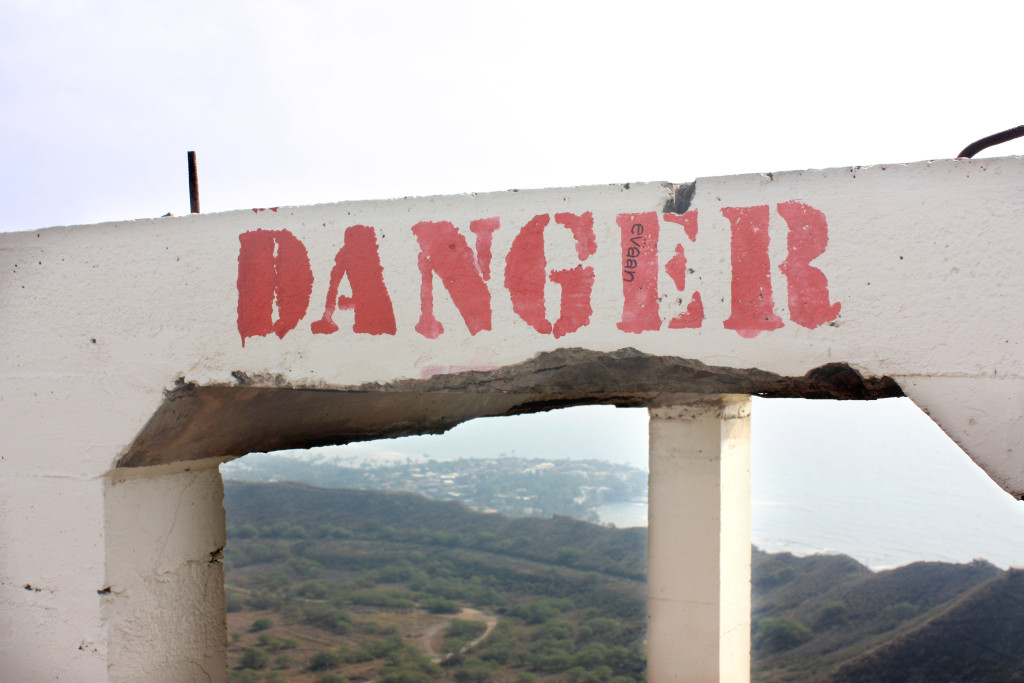Where is the fine line between paranoia and wisdom? Between obsessive thinking and listening to your gut?
A friend of mine lost her job recently. When she called, she was in complete shock and could hardly breathe. “ I had no idea this was coming,” she sobbed. “ I just bought a new house for God’s sake.” I listened while I tried to calm my own nausea. No one deserves this.
A week or so later, when I was finally able to take her to lunch, she was reviewing the last month of her employment, going over every detail. During this monologue she said, “ I saw my boss walking down the hall, followed by a tall, well-dressed man. I had this instant thought. That’s my replacement. It was a weird message and I got this strange feeling in my gut. But I ignored it and went right back to my work.”
Another friend confided in me that, after three months of dating a particular woman, he started getting uncomfortable feelings. He couldn’t name anything specific, but he wasn’t feeling secure. Because nothing was particularly concrete, he just kept trying harder and tamping down what he called negative feelings. At night he was lying awake reviewing every minute of their last date. He didn’t want to be a kill-joy and he certainly didn’t want to act untrusting. This week she told him she wasn’t ready for a serious relationship and she was going to start dating others.
Where is the fine line between paranoia and wisdom? Between obsessive thinking and listening to your gut?
If we move from a close-in, personal perspective to a larger, community perspective, it takes almost nothing to bring up examples of warnings that have not been heeded. Every time there is a campus shooting we hear people say that they thought the shooter was “creepy” and how there were warning signs. When the housing market collapsed we had all kinds of warning signs that we chose not to heed. Daily we hear warning signs about the climate, about our national deficit, about the side-effects of prescription drugs, about pesticides, about the infrastructure, about national security about………pick your favorite.
In his ground breaking book The Gift of Fear, Gavin De Becker posits that intuition is our most basic and reliable survival skill. When it produces fear as distinct from worry or anxiety we should pay attention. Apparently we are the only species that approaches fear rather than heeding it and backing away. In a Q&A with DeBecker, he said this:
“We don’t have the sharpest claws and strongest jaws–but we do have the biggest brains, and intuition is the most impressive process of these brains. It might be hard to accept its importance because intuition is often described as emotional, unreasonable, or inexplicable. Husbands chide their wives about “feminine intuition” and don’t take it seriously. If intuition is used by a woman to explain some choice she made or a concern she can’t let go of, men roll their eyes and write it off. We much prefer logic, the grounded, explainable, unemotional thought process that ends in a supportable conclusion. In fact, Americans worship logic, even when it’s wrong, and deny intuition, even when it’s right. Men, of course, have their own version of intuition, not so light and inconsequential, they tell themselves, as that feminine stuff. Theirs is more viscerally named a “gut feeling,” but whatever name we use, it isn’t just a feeling. It is a process more extraordinary and ultimately more logical in the natural order than the most fantastic computer calculation. It is our most complex cognitive process and, at the same time, the simplest.”
Many of us, maybe most of us, have been trained to be skeptical of anything that isn’t reasonable. While the Age of Enlightenment offered much to the world, what it took away was a trust in the mystical, the trans-rational, the receptive ways of being. With a nod to Jungian psychology, we lost the Feminine Archetype. With a nod to Christian mysticism, we lost the contemplative. All of us, male and female, have masculine and feminine traits. The feminine, contemplative part of each of us is the part that honors intuition, trusts the mystical, and grounds itself in wisdom.
How do you tune-in to your intuition? To your inner wisdom?
How do we stay wise without being paranoid? It is a balancing act that is not for the weak or the meek. Click To Tweet The word heed has its roots in early English, Germanic and Dutch languages, and it was often used in fairy tales where one could expect mysterious warnings and magical consequences. “Take heed,” characters were told. The words carried weight. Import. Stay awake. Pay attention.
The word heed has its roots in early English, Germanic and Dutch languages, and it was often used in fairy tales where one could expect mysterious warnings and magical consequences. “Take heed,” characters were told. The words carried weight. Import. Stay awake. Pay attention.
Oh. Damnittohell. (This was my mother’s favorite non-curse curse). There it is again. Pay attention. Wake up. Practice mindfulness. Again. Again. Again.
How much of the time do I, do you, walk around in a trance? Not mindful at all? Ignoring the very things right in front of us? Not the least bit awake. Ignoring danger. Writing off those gut feelings as “nothing”.
I asked a client once if she “wanted to wake out of her trance?” (She knew her husband was having an affair. She was pretty clear she was not willing to deal with it.) She told me clearly and in no uncertain terms that she did not want to wake out of her trance. She did not want to know. So a year later, when her trance was shattered for her and she was devastated, she came back. Her exact words were, “I should have heeded the warning.”
So why don’t we heed warnings? What’s up with us? Why don’t we wake up? I have a few thoughts about that:
- I don’t want to change.
- THIS is comfortable and familiar. THAT is not.
- I don’t have the energy to take this on.
- Maybe it will go away.
- It will be too much work.
- I have so much invested in this.
- This will challenge my old ways of thinking.
- I am angry that I am having to deal with this.
- I already had a plan. This interrupts my plans.
- I don’t want to give up what I already have.
- I think I am right. If I look any deeper, I may be wrong.
- What if I take action and then I am wrong?
- I am hopeful that this will shift and right itself. Optimism is a good thing, right?
So much of this boils down to not wanting to change. We all seek homeostasis. So heeding warnings is hard work, people. It requires a willingness to change, a willingness to be changed, a willingness to trust that we are capable of change, a willingness to be proactive, a willingness to engage in conflict, a willingness to be influenced by others, a willingness to be wrong, a willingness to learn. All these hard things we don’t want to do. But then we have to because we didn’t heed the warnings.
Life can get really messy when we don’t heed warnings. So heads up, LiM2 followers. Heed those warnings, and perhaps your life will be more marvelous!
Amy


